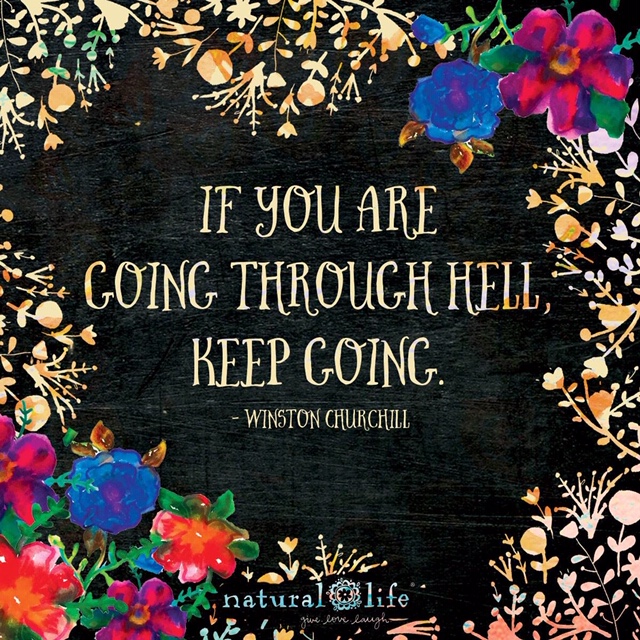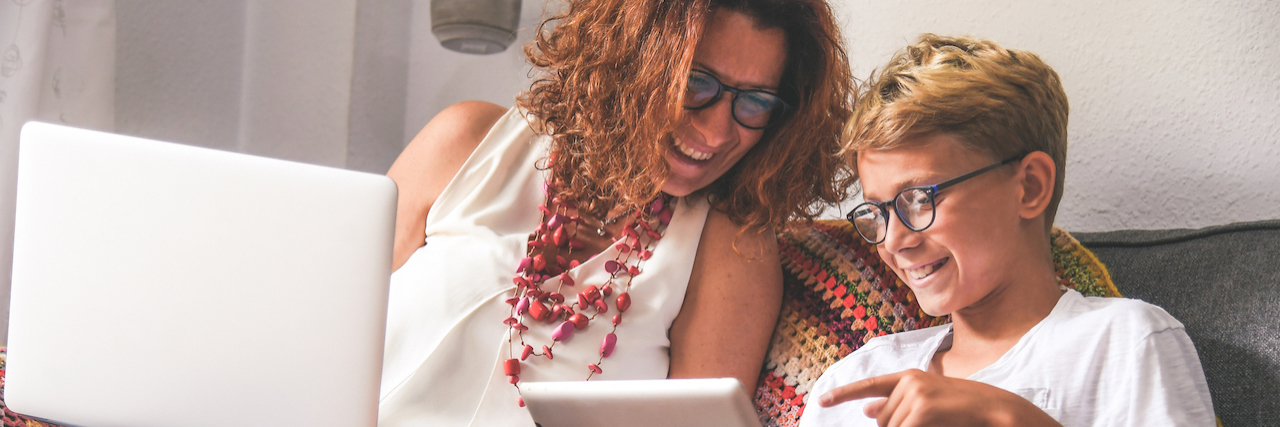Parenting During a Pandemic When Your Child Has OCD
Editor's Note
If you’re looking for creative inspiration, check out the Daily Inspirations group on The Mighty.
Much has been written about the plight of parents during the COVID-19 crisis. Moms and dads are navigating the trials of working remotely, keeping their kids on track with school and trying to create activities for the family within the safe confines of one’s home. Hilarious memes fill social media that nail the lockdown vibe. The comments of war-torn mothers are equally amusing. One read, “Day 42, still no blood or bone showing, I guess we’re doing great!”
There are, however, some at-home heroes who are not being recognized enough during this quarantine: parents who are maneuvering through a pandemic with a child with obsessive-compulsive disorder (OCD). The coronavirus has triggered the OCD and anxiety community in unprecedented ways, including not just those who struggle with contamination fears. So while we are lauding the trials of parents moving through mandated restrictions, we must also consider those who are additionally called to manage a significant mental health crisis.
You’ve probably seen some representation of OCD in the media, or have an organized friend who insists “they’re a little OCD.” In reality, OCD is much bigger than contamination fears and can take many forms. Intrusive thoughts are the triggers for OCD. Those thoughts are unique to the one who experience them, but what they all do is utterly torment. That’s why we are now seeing the hashtag #REALOCD on social media. It’s time to end the misconceptions and stigma surrounding this disorder.
Exposure response prevention (ERP) remains the best treatment, but to be truly effective it needs to be practiced beyond the therapist’s office. It is all about continued work, and parents need to learn to keep the ERP going at home. Families quickly learn OCD demands reassurance (“Will I be ok if I touch that?”), accommodation (will you open the door for me?) and wants to be indulged (forget family rules, mine have to be followed). It’s never easy to do, but parents can’t give in to these common demands of OCD. For many parents who are used to creating a safe, comfortable environment, holding ground against these requests feels counterintuitive to the parental constructs of love and nurture. But with time and training, it gets easier and proves instrumental to their victory.
But then COVID-19 hits and it would seem all bets are off. Unlike the intrusive thoughts that often have no basis in reality, this time the threat is real. For some, especially those with contamination fears, it can feel as if they were right all along. This virus is a boogeyman of epic proportions and even mom and dad are frightened. We are all seeking reassurance, scrolling or tuning into far too much TV, waiting for the presidential task force or the governor to tell us we have this virus under control. Kids who struggle are looking to their parents for stability, only to read concern on their faces.
The OCD, now triggered, begins to create havoc in the household. Fear produces anger, outbursts and demands. Parents, knowing this threat is real, soften to the suffering of their child. Parents may disagree on the parameters put around OCD, and this leads to marital distress. The slogan “Safer at Home” feels like a cruel joke.
Here is what parents in this situation can do:
Soak Up Knowledge from Reliable Resources
Knowledge has always been power in the treatment of OCD. The opportunities for information, support and even treatment online have never been better than they are right now. The International OCD Foundation (IOCDF) has launched a COVID-19 resource page as well as a self-care page to support the community.
The IOCDF is also offering multiple live streams and town halls with the top minds in OCD every week.
Connect
You are not alone in this struggle, and even though we can’t connect face-to-face, this season has prompted innovative, meaningful online programming that allows us to rally around a cause and/or to get together online.
You can find a link to IOCDF affiliates and check out the one nearest to you to see if they have any peer-led Zoom support groups.
Continue (Or Start) Treatment via Teletherapy
Families with someone struggling with OCD will undoubtedly need the support of a mental health professional during this time. It might not feel ideal to connect online, but many have found telehealth to be surprisingly effective and easy to navigate. Search for a qualified clinician doing teletherapy here.

Keep Going
Lastly, remember what Winston Churchill said about how to win World War II. “If you’re going through Hell, keep going.” Remember, the only way out is through, but when you utilize the resources around you it makes it so much easier. Luckily, we are much more connected than those who lived through the 1918 flu pandemic. To those of you who are struggling, you are not struggling alone.
For more on the coronavirus, check out the following stories from our community:
- What to Do If the Coronavirus Health Guidelines Are Triggering Your Anxiety or OCD
- 5 Ways to Support Your Family’s Mental Health During the Pandemic
- How We Can Promote Continuity in Special Education Programs During the COVID-19 Pandemic
- How the Pandemic Impacts Our Family With a Medically Complex Child
- What to Do When Your Child on the Autism Spectrum’s Routine Is Disrupted by the Coronavirus
Getty image by Fabio Principe

